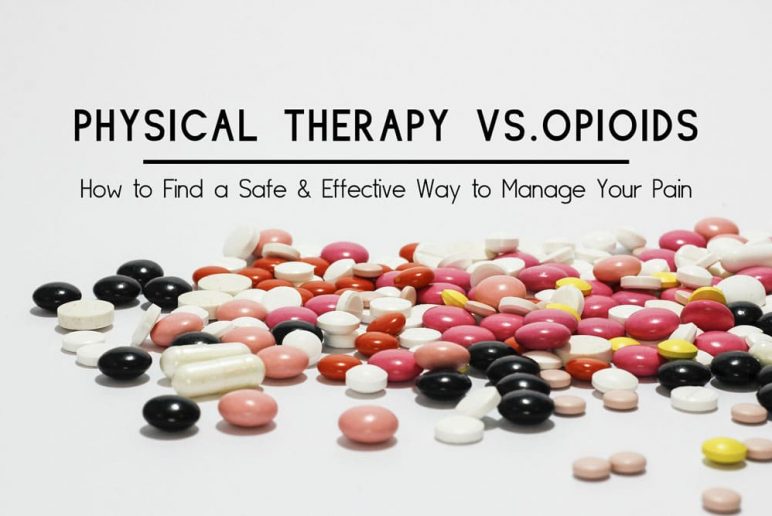
PT vs. Opioids: How to Choose a Safe & Effective Way to Manage Pain
August 18, 2016Lately, there has been a lot of talk about the overuse and the over- prescribing of opioids to manage chronic pain. Opioid is a type of prescription pain medication that includes hydrocodone, oxycodone, morphine, and methadone.
More Americans die every year from drug overdoses than they do in motor vehicle accidents and the majority of the overdoses are from prescription medications. The Center for Disease Control and Prevention (CDC) stated that an estimated 20% of patients receive an opioid prescription for non-cancer pain symptoms (CDC Guideline, 2016).
In lieu of these statistics, CDC recently released guidelines that recommend nonpharmacological methods such as physical therapy, psychological therapy, and weight loss for knee OA over addictive painkillers. CDC created a fact sheet that encourages people to “try and optimize” non-opioid therapies before considering an opioid prescription. CDC also provides a list of cases where opioid prescriptions should be avoided all together. They also advise for current opioid- users to take the “lowest effective dosage” and to combine it with a non-opioid therapy.
The American Physical Therapy Association (APTA) along with 39 other healthcare provider groups began to take initiative in an effort to reduce Opioid Abuse. They have started a campaign called, “MoveforwardPT” highlighting the CDC guidelines and when to choose PT over opioids. Physical Therapy is a better alternative if the risks of opioids are greater than the benefits. Physical Therapy is for patients who want to do more than just mask the pain caused by low back pain, hip or knee OA, fibromyalgia (See Blog on Fibromyalgia), or pain that lasts over 90 days.
Despite these recommendations, CDC agrees that there are certain cases where an opioid prescription is appropriate for pain management such as for cancer treatment, palliative care, and end-of-life care.
So What Now?
Physical Therapists can play an important role in pain management through educating patients and setting realistic paths for recovery. If you or someone you know has chronic pain, ask your doctor about seeing a Physical Therapist or sign up today for a free assessment below at CBPT!
Sign up for a FREE Assessment with CBPT!
Reader Interactions
Leave a comment
You must be logged in to post a comment.





